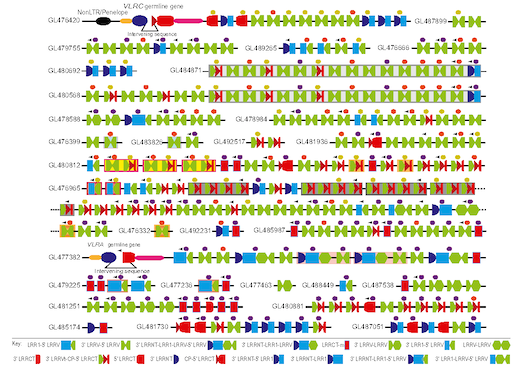This complex diagram, showing the gene segments that encode lamprey variable lymphocyte receptors, comes from a recent PNAS paper published by Emory’s Max Cooper and his colleagues along with collaborators from Germany led by Thomas Boehm. Lampreys have molecules that resemble our antibodies in function, but they look very different at the protein level. The study of lamprey immunity provides hints to how the vertebrate immune system has evolved.

- Search
- Updates by Email
-
Latest Posts
- Emory Blogs
- Related Links
- Meta




